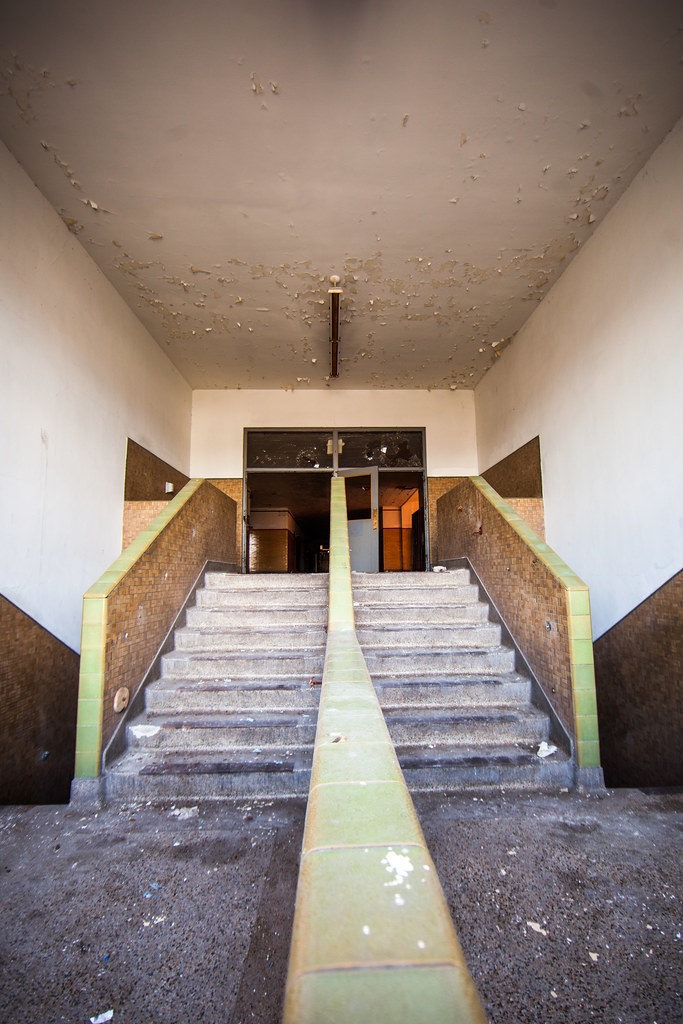
October 28, 2019; NBC News
Do our children have a right to a good education? Does it stand alongside the other core principles of the Constitution? Those are the questions raised by lawyers representing a group current and former Detroit students when they recently appeared in a federal appeals court. They claim that right, and they want the appellate justices to reinstate their case after a district court rejected their claim.
When the lawsuit was filed in 2016, Detroit’s schools were in total disarray. They had been under the control of a state-appointed emergency manager for more than a decade and continued to struggle. The elected school board had been disenfranchised. After years of insufficient funding, it was in serious financial distress. Buildings were in a state of disrepair that motivated teachers to call a “sick-out,” pleading for public attention. As NPQ reported on at the time, the “seriously deficient conditions of Detroit’s school buildings…[included] mold, leaky ceilings, busted windows, rodents, roaches, lack of heat and standing water.”
The students’ argument is straightforward: Education is a civil liberty. Students have a right to an education that will equip them to be functioning citizens. When that right is not honored, they argue, they leave school handicapped by their deficiencies and unable to fulfill their potential. Attorney Mark Rosenbaum told Chalkbeat, “Where state officials… deny access to literacy to children of color from low-income families, they perpetuate the most pernicious form of racial inequality that government can inflict on its most vulnerable and deserving population.”
Sign up for our free newsletters
Subscribe to NPQ's newsletters to have our top stories delivered directly to your inbox.
By signing up, you agree to our privacy policy and terms of use, and to receive messages from NPQ and our partners.
Martha Minow, a former dean of Harvard law school and the author of a book about the legacy of the landmark Brown v. Board of Education Supreme Court decision, sees the disparity between the education of children like those in the Detroit schools and those in other more affluent districts as validating the suit. She told NBC, “[when] some people are getting an education and other people are not…that’s discrimination. It might be a different world if we had a state that did not offer education to anybody, but there are people in the suburbs who are getting a very good education, so they’re creating a second-class caste system, a group of students who have no chance of having entree to good jobs and to be effective citizens and to be able to govern their lives.”
The impact of a failed school system is, for the plaintiffs, very personal. Jamarria Hall, a 19-year-old who graduated from Detroit’s Osborn High School, was recently featured in an NBC news report. Jamarria called school a “waste of time,” explaining that his high school classes were taught from books meant for elementary students. “It feels like I’ve lost an opportunity or lost four years of my life,” he said, noting the school’s thorough lack of resources. “It’s really despicable for me to live in America and to have a chance at the American dream and to be able to live in a society where everybody should have the same opportunity and to know that it’s not happening for me.” Although he graduated at the top of his class, he now is struggling to pass classes in the community college program he is pursuing.
The attorneys representing the State of Michigan and Detroit schools do not argue that conditions are good or the way they should be. They just reject the premise that education is a right, because it is not specifically identified as one by the US Constitution. (We might refer them to the ninth amendment on this point.) The conditions faced by students may be deplorable, officials say, the quality of education they can achieve with limited resources may hamper them for their entire lives, but no constitutional requirement has been breached.
Mark Rosenbaum, one of the attorneys for the Detroit students, is hopeful that they will come out with a victory. “The Supreme Court has said affirmatively that you cannot compel people to do something and then not deliver on what you said you can deliver on,” he said. “You can’t put children in school for six or seven hours a day on compulsory education laws and then not deliver an education any more than you can put a patient in a mental hospital and then not provide treatment.”
The Detroit students’ suit adds their voices to the ongoing debate about how to improve our schools. It focuses the discussion on issues of equity rather than on choice and charters. If they are successful, it may push policy makers to address the underlying issues of race and poverty that are known to be strong forces in determining educational success. Facing disparity of funding and the inherent racial bias of our culture will, despite their political difficulty, need to be more directly addressed if Rosenbaum is correct.—Marty Levine













